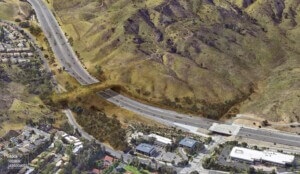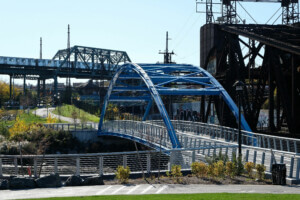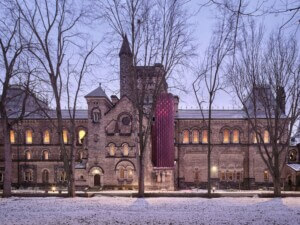After years of deliberation, Montreal’s regional light rail has been given the go-ahead to begin engineering and construction. Reseau Express Metropolitain (REM) is a fully automated, $5.3 billion light rail project consisting of 26 stations spread out over an approximately 40-mile electrified network. Upon completion, the REM will be the fourth largest automated light rail line in the world after Singapore, Dubai, and Vancouver.

NouvLR General Partnership, which includes multinational engineering firms SNC-Lavalin and AECOM, is leading the construction and future operations of the network. The architecture and design of the future stations result from a collaboration between award-winning firms, Perkins+Will, Lemay, and Bisson Fortin.
As reported by the Global Construction Review, the new light rail network will establish a comprehensive rapid transport link between downtown Montreal, the international Aeroport-Montreal Trudeau, and the suburban areas of South Shore, West Island, and North Shore. The four branches of the REM will consist of surface-level, underground and overhead routes, serviced by an initial fleet of 240 cars. The 26 stations will have 260-foot platforms, universal access facilities, and a number of intermodal connections to the city’s bus and commuter rail networks.

Although REM will be a network independent of the Montreal Metro, the city’s existing public transit system, the two bodies will share four stations within the city’s center.
With Greater Montreal boasting a population of over four million, the seamless integration of regional rail with local rapid transit has the capacity to dramatically boost economic growth within the city. The CDPQ estimates that REM could attract $4 billion in private real-estate investment and reduce congestion-related costs by $1.5 billion.
Construction is slated to begin in April 2018, with an expected completion date of 2021. However, there are significant hurdles to overcome before construction begins, such as making the necessary land purchases. According to Business Insider, CDPQ will consult local communities and host urban planning competitions to insure that initiatives surrounding the new stations integrate into their neighborhoods and support local residents.

Funding for the project derives from a mix of government entities and state corporations. CDPQ Infra will provide $2.35 billion as well as cover any cost overruns, the Governments of Quebec and Canada will provide $1 billion each, the public utility corporation Hydro Quebec will contribute $230 million, and the Montreal Transit Corporation will chip in $405 million.
The REM is not the only ambitious infrastructure project undertaken in Canada recently. On December 17, Toronto opened the largest expansion of its subway system in decades. Although Toronto’s 5.3-mile extension of its subway network falls under the purview of the municipal Toronto Transit Commission, it similarly ties the urban core to the suburban periphery.











